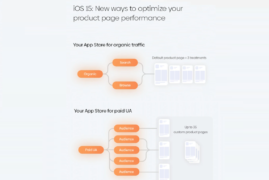There is no single answer as to what a technology agnostic means. For some, it means being able to look at different information technology tools from an outsider’s perspective. That is, being able to have an unbiased look at various technological tools. For others, it means being unwilling to commit to an opinion when it comes to choosing the right technology for a software project.
From our experience as an app development company, both of these definitions fall short and do not reflect the reality of what being a technology agnostic means for business processes. For us, being a technology agnostic app development partner means helping clients find the technology they need in the right way. This conclusion sounds pretty simple, but it can make an important difference for your app development project. As a service provider, choosing the correct technological alternative for a client demands knowing what the market offers and what the client needs and is able to implement.
The Right App Development Tools
When it comes to choosing the right BI tool, an Enterprise Resource Planning (ERP) platform, an appropriate processor architecture, or the correct database management system, there is a lot of information to process, and no tool is a silver bullet. Although it might be hard to believe at first, things get even more complicated when it comes to trying to find the right app development tools.
Apps can be built for the web, mobile devices, or desktop computers. This means that in terms of technological alternatives, they have a lot of terrain to cover. That is why companies looking for the right app development alternatives often need someone to help them decide and implement the correct solution while being objective about it.
However, for one reason or another, many app development companies often fail to consider the necessary elements to choose the right option. On other occasions technology providers have their own interests, and these sometimes interfere at the moment of making a crucial decision.
There are way too many alternatives out there, and a single company can’t stay up to date with all of them. Even technology companies struggle with this, and that’s okay. The important thing is to accept the fact that there are many different tools in the market for building an app, and that one of them surely fits the purpose. Finding the right one, under the right circumstances, should be the goal.
Finding the Right Solution
Helping companies find the right solution for their app development projects is not as easy as it sounds. On the one hand, common-sense tells us to just choose the best ideal solution. This road often leads to buying the best market solution. This sounds great, but in reality, many obstacles can prevent such a solution from becoming a reality, and a custom product is usually always better.
Sometimes, projects within existing companies have difficulties pivoting from an established technology to another. This happens due to legacy technologies as well as restrictions like time, money, and skills. When a project is already going, many companies prefer to stick to what they already have and try to work something out from there.
For the case of companies that are just starting, having the proper resources to implement the ideal solution is not always possible. In those cases, it is best to go for a solution that allows the company to achieve some short and mid-term goals, always keeping the long term in sight.
The Problem of Doing the Least Amount of Effort
It often happens that app development companies try to go for the alternative that demands the least amount of effort on their behalf. An example of this is when app development companies recommend a virtual machine because of its convenience without actually taking the time to understand what programming language would work best for a given operating system based on an app’s requirements. This situation is very inconvenient for numerous reasons.
Implementing the best solution may require a lot of work, and although choosing the easiest one can save your team time, in the long term, it might end up being more expensive and resource consuming. Working out a temporary solution may result in long term difficulties. Temporary solutions often fail when it comes to scaling or integrating with other software tools.
Thus, project teams seem to face two alternatives: choosing an off the shelf and often troublesome solution, or trying to work with what they already have.
Technology Agnosticism as Objectivity
To overcome these two challenges, development companies and their clients need to look jointly at app technologies from an objective perspective. Being technology agnostic does not mean to try out every possible tool. Instead, it means being objective about it.
Technology agnosticism is about strategic decision making, and most importantly, about preventing emotions and false assumptions from skewing the choices technologists make.
Emotional attachment to certain technologies is real, and it needs to be addressed and overcome in order to choose the right app development tools. Doing so demands stepping away and looking at a project as an outsider. It also requires being informed about different choices and their strengths and weaknesses.
This is a great responsibility for app development companies. They have an important say in their clients’ future, one that can actually make them succeed or fail. Development companies that are unable to stand up for the challenge may end up creating undesired business consequences.

